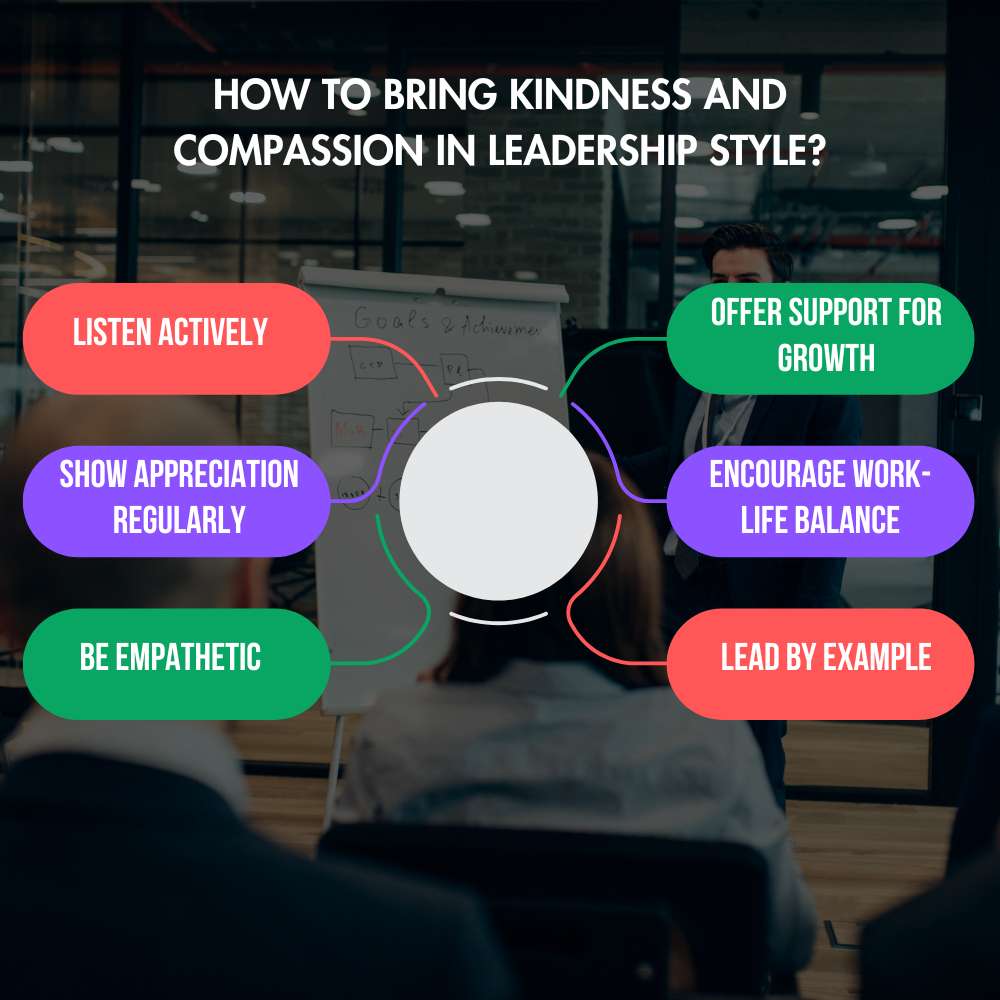When I first started running my business, I believed that leadership was all about results—meeting deadlines, staying on budget, and maintaining control. However, over time, I realized that leadership isn’t just about achieving goals. It’s about people. By using kindness and compassion in leadership, I saw a dramatic shift in my team’s motivation and morale. This experience taught me that being empathetic and understanding toward others is just as important as being decisive and focused. In this article, I’ll help you to know how kindness and compassion can transform leadership and build a supportive workplace.
Why Kindness in Leadership Matters?
At first glance, kindness in leadership might seem like a soft skill, something that’s not as important as making tough decisions or driving performance. But when a leader is kind, it opens up communication and creates a trusting environment. Team members feel more comfortable sharing their thoughts and concerns, knowing they won’t be judged.
Here’s how kindness can help:
- Building Trust: Kind leaders create an atmosphere where employees feel they can be honest and transparent. When employees trust their leaders, they’re more likely to speak up and share ideas, which can lead to better collaboration and problem-solving.
- Improving Team Morale: A simple “thank you” or an acknowledgment of hard work can go a long way in boosting the team’s spirits. Kindness makes employees feel seen and appreciated, which increases their motivation to perform well.
- Lowering Stress: Kindness can also help reduce stress. When leaders show they care about the challenges their team faces, it makes the work environment feel less tense and more supportive, helping everyone to perform at their best.

Compassionate Leadership: A Path to Long-Term Success
While kindness is about showing respect and appreciation, compassion takes it a step further. Compassionate leaders go beyond just recognizing people’s efforts—they’re genuinely concerned about their well-being. They make time to listen, understand personal challenges, and offer help when needed. This is not just good for the employees, but it also builds a stronger, more loyal team.
Here are some benefits of compassionate leadership:
- Stronger Team Bonds: Compassion encourages empathy within the team. When leaders show compassion, it sets a tone for the whole group, making it easier for team members to support each other.
- Improved Retention: Employees are more likely to stay with a company where they feel cared for and supported. Compassionate leadership helps reduce turnover because people are more likely to stay in environments where they’re valued, both as employees and as individuals.
- Better Performance: While it might seem that a hard-nosed approach would get the best results, compassionate leaders often see higher performance. Employees who feel understood and supported are more likely to be engaged and work harder to meet the organization’s goals.
Leading with Kindness and Compassion in Times of Crisis
When times get tough, kindness and compassion in leadership become even more important. Whether it’s during a personal crisis for an employee or a company-wide challenge like an economic downturn, a compassionate leader’s response can make all the difference.
Take the COVID-19 pandemic, for example. Leaders who checked in on their employees’ mental health offered flexible work arrangements and showed they cared about their teams’ well-being helping to ease the stress of the situation. This kind of leadership not only helped employees cope with the challenges but also built trust and strengthened the relationship between leaders and their teams.

How to Bring Kindness and Compassion in Leadership Style?
If you want to lead with more kindness and compassion, there are a few simple things you can start doing right away:
- Listen Actively
- Show Appreciation Regularly:
- Be Empathetic
- Offer Support for Growth
- Encourage Work-Life Balance
- Lead by Example
The Long-Term Impact of Kindness and Compassion in Leadership
By consistently practicing kindness and compassion, leaders create a work culture that values people. This kind of leadership not only helps individuals feel more engaged but also drives long-term success for the organization. When employees know they’re working for a leader who genuinely cares, they’re more likely to stay committed, work harder, and contribute positively to the company.
In the long run, kindness, and compassion in leadership also help attract top talent. Today’s workforce is more likely to join and stay at companies where they feel supported, both in their work and as people. It’s no longer just about a paycheck; employees want to feel like their leaders have their best interests at heart.
Conclusion
To sum it up, kindness and compassion in leadership are not just nice to have qualities, they’re essential to building strong, successful teams. By being kind and compassionate, leaders create environments where employees feel valued, supported, and motivated to do their best work. This, in turn, leads to greater collaboration, higher retention, and better overall performance. As we continue to evolve in the workplace, it’s clear that the leaders who lead with kindness and compassion will be the ones who build the most resilient, successful teams.







